British Asian artists hope for official singles chart boost
- Published
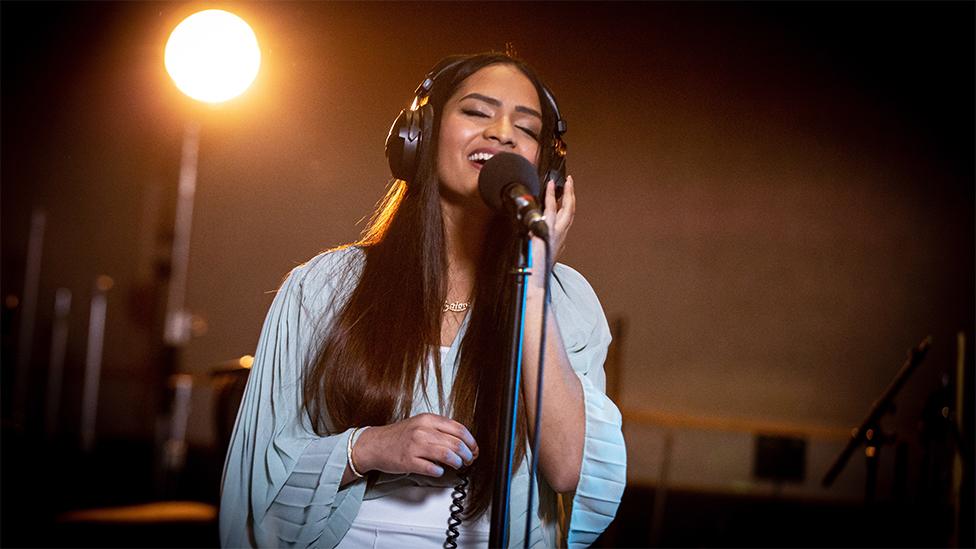
Saloni sings in over 10 languages, bringing together eastern and western cultures with her mix of pop, R&B and Bollywood
Trying to find a space in the South Asian music scene has historically been tough for British Asian artists.
Faced with competition from Bollywood and the global rise of Punjabi music, recognition in the charts has been limited.
For UK artists such as Saloni, putting in lots of effort for little visibility can be tough.
"If you're an up-and-coming artist competing with mainstream pop charts it's really hard to get on there," Saloni tells BBC Asian Network.
But there are hopes the launch of the first-ever Official British Asian Music Chart could help more young talent into the big time.
Airing on Asian Network every Thursday, the weekly show will focus on domestic artists, unlike the station's existing, more global, chart.
Compiled by the same people as the Official UK Singles Chart, sales and streams will be counted over a seven-day period.
Saloni describes it as "exactly what we all need".
"For artists like myself that might not be so well-known globally but building a bit of a fan base in the UK, I think it's a huge step to show visibility."
The Without You singer feels the existing Asian Chart is dominated by Bollywood or, increasingly, artists from Canada where the Punjabi music scene is big.
"I love all the music, but it's a bit limiting in terms of local artists that are being represented," says Saloni.
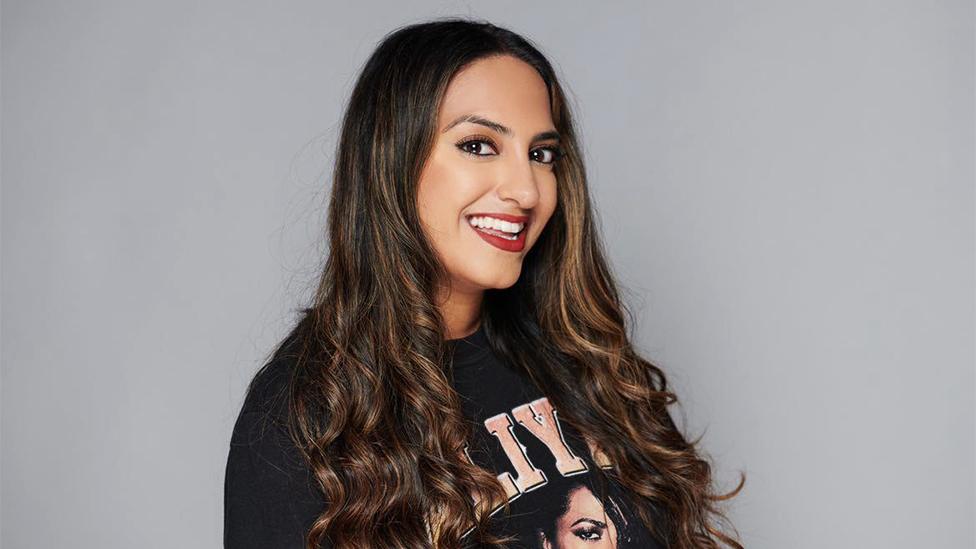
Jasmine hopes her new show can help take new artists "mainstream"
It's a frustration shared by BBC Introducing presenter Jasmine Takhar, host of the new chart show.
"When you're making incredible music, there are people who haven't heard it because you didn't make the top 10 or 20 because there's a big Bollywood film out that week," she says.
Jasmine says British Asian artists are making music that's "different to what we hear in other countries".
"You're representing your culture, but also your viewpoint on how you've grown up in the UK.
"It's a different generation," she says.
London artist Ezu agrees and says "the number one thing is about repping your culture".
"When you're stepping into the field where you're with big artists, you have to be proud of what you're doing," he says.
"I feel a lot of people [in the UK] are popping right now and doing their thing… but they're not getting the same hype or push.
"I feel like we need something for us, to revive ourselves. There's only so much talent can do, and we've got the talent."
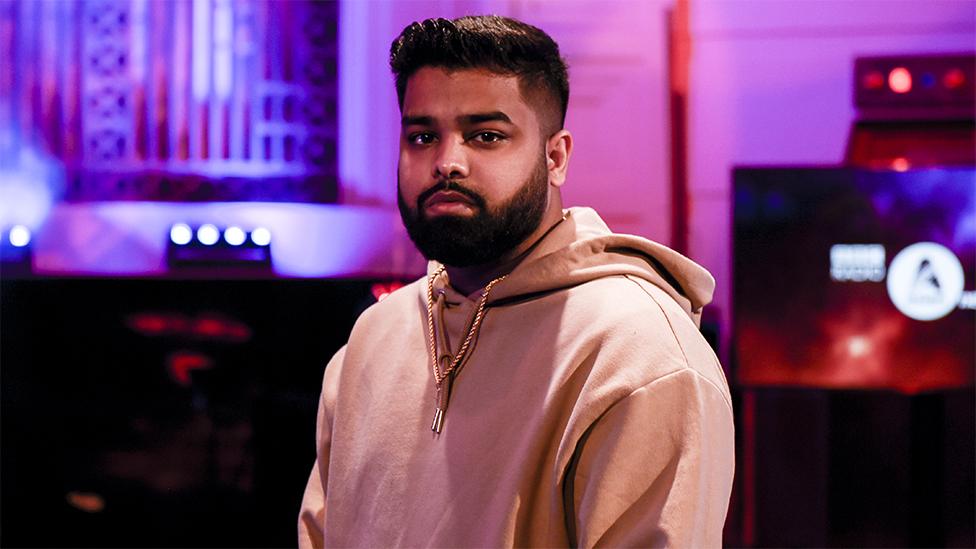
Singer-songwriter Ezu has 1.8 million monthly Spotify listeners
Jasmine admits it's tough when talented musicians don't always make it mainstream in the UK.
"People assume the kind of music that you're going to make," she says. And it's those assumptions and that level of ignorance that stops certain artists from moving forward."
But with platforms like TikTok helping artists spread their music, she hopes that can help achieve greater recognition.
Though the video app doesn't have a direct effect on charting, it can influence the music listeners will end up streaming - which does then impact chart positions.
As an independent artist, Saloni relies heavily on social media to get her music out there.
"If the names [going big on social media] are being mentioned, people will recognise these artists. And you never know what doors that might open," she says.
There is an acceptance that while the new chart can help accelerate visibility, it cannot create success on its own.
Saloni feels "mainstream" means chart success, but also "performing on the same stage as certain people, when it comes to line-ups for festivals or opening for artists".
She will be performing on the Introducing Stage at Radio 1's Big Weekend in May.
For now though, Saloni and Ezu agree the chance to be top of the charts is a badge of honour.
"It's another accolade that we can win. Getting a number one is like winning a race, so you get this honour of being the top song in the country," Ezu says.
"Performing Big Weekend is a huge thing. This number one would be even bigger," Saloni adds.


Related topics
- Published14 April 2024
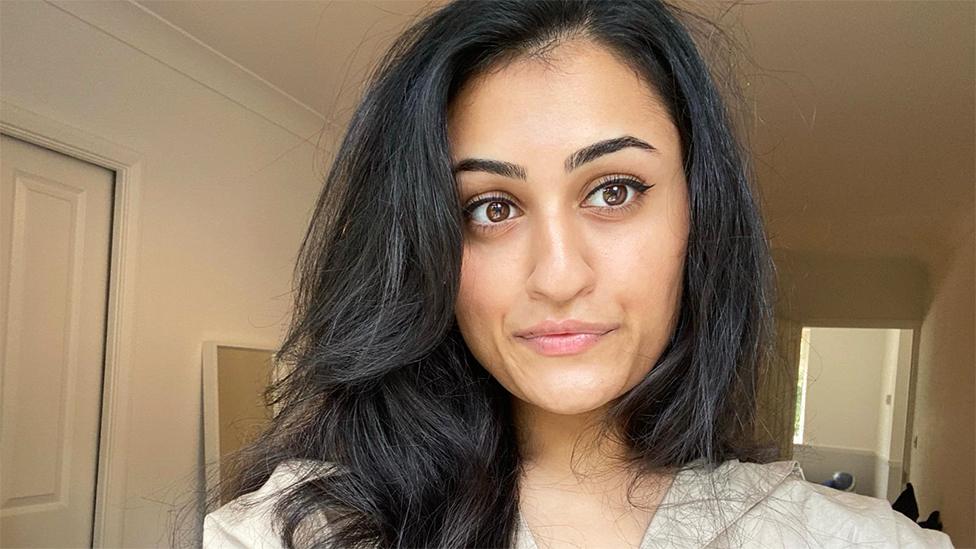
- Published15 April 2023
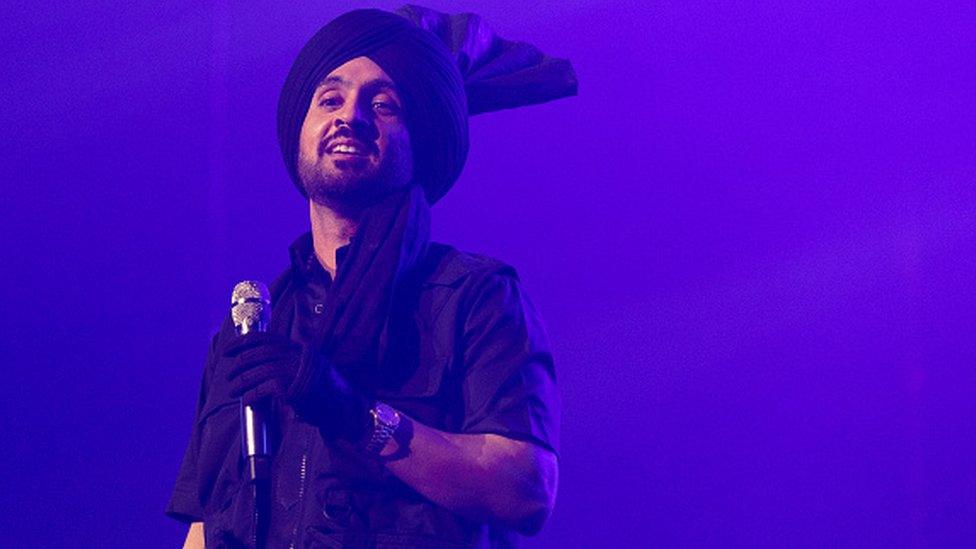
- Published25 November 2023
